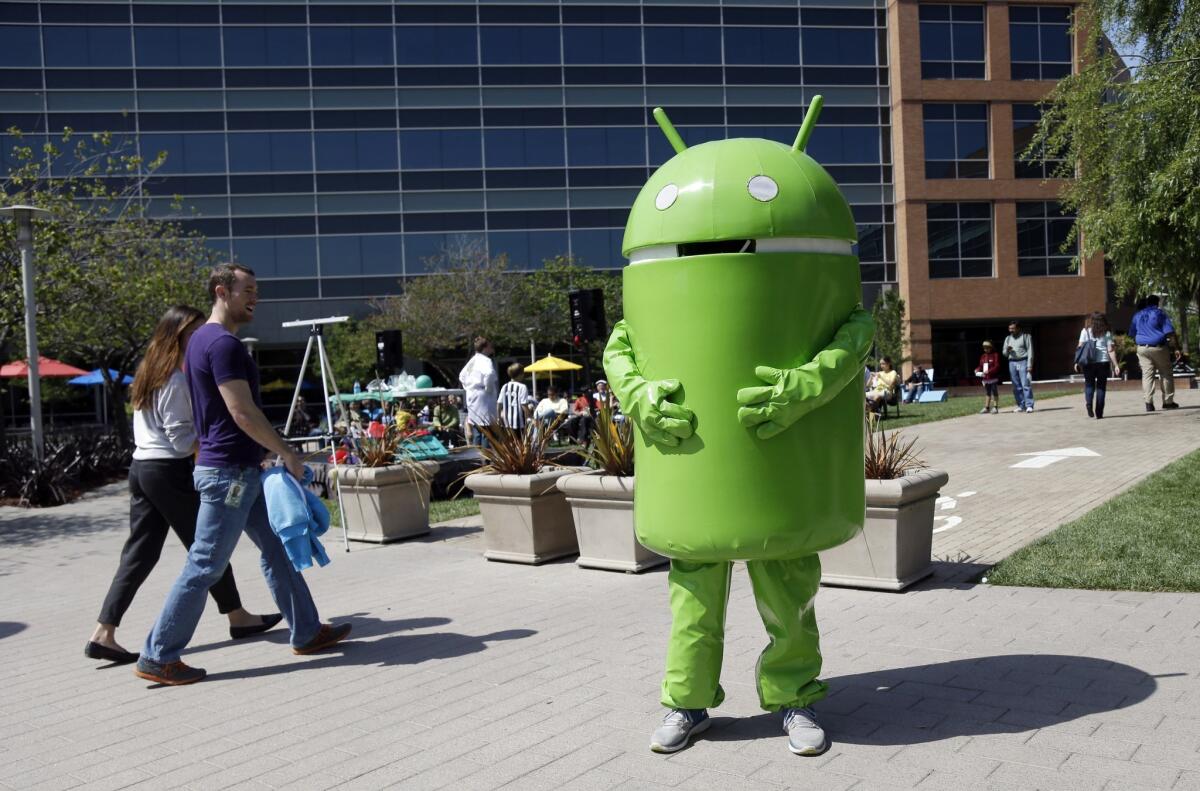Google to refund at least $19 million for kids’ in-app purchases

Reporting from Washington — Google Inc. has agreed to pay at least $19 million in refunds to settle federal allegations that the Internet giant improperly billed parents for unauthorized purchases by their children while using mobile apps.
The company also promised to change its billing practices for so-called in-app purchases “to ensure that it obtains express, informed consent from consumers before charging them for items sold in mobile apps,” the Federal Trade Commission said Thursday.
The unauthorized charges began in 2011 for virtual items purchased on apps sold by Google Play for use on Android mobile devices, the agency said. Some parents complained their children racked up hundreds of dollars in charges that never were authorized.
“As more Americans embrace mobile technology, it’s vital to remind companies that time-tested consumer protections still apply, including that consumers should not be charged for purchases they did not authorize,” said Edith Ramirez, the agency’s chairwoman.
Google agreed to send out a minimum of $19 million in full refunds for charges incurred by app users who were less than 18 years old.
The company will contact all consumers who made in-app purchases to let them know about the refunds, the agency said.
“We’ve already made product changes to ensure people have the best Google Play experience possible,” Google said in a written statement. The company said it was “glad to put this matter behind us.”
Ramirez said there was no indication Google intentionally tried to lure in-app purchases.
“We’re not alleging there was any malicious intent here,” she said. “We are saying that companies need to ensure they obtain informed consent.”
The agency has been cracking down on unauthorized in-app purchases by children of virtual items for use in games and other apps. The items can cost anywhere from 99 cents to as much as $200.
In January, Apple Inc. agreed to pay at least $32.5 million in refunds to consumers for such purchases.
And in July, the agency filed a complaint against Amazon.com, alleging it unlawfully billed parents millions of dollars for unauthorized purchases through apps on the company’s Kindle Fire and other mobile devices.
Google introduced in-app charges in 2011 and at first billed without any requirement for a password or other authorization, the agency said.
In mid- to late-2012, Google began asking for the account holder’s password in a pop-up box before billing for an in-app purchase. But the box contained no information about the charge and once the password was entered, children could make unlimited purchases for the next 30 minutes, the FTC complaint said.
Thousands of parents complained to Google, some noting their children were unaware the virtual purchases cost real money, the agency said.
Google employees referred to the practice as “friendly fraud” and “family fraud” when discussing what had become a leading source of refund requests, the FTC complaint said.
The company initially referred parents to the app developer for refunds, the agency said.
The agency will take public comments on the proposed settlement for 30 days before voting to finalize it, Ramirez said
For breaking economic news, follow @JimPuzzanghera on Twitter
More to Read
Inside the business of entertainment
The Wide Shot brings you news, analysis and insights on everything from streaming wars to production — and what it all means for the future.
You may occasionally receive promotional content from the Los Angeles Times.











